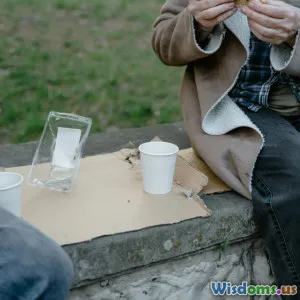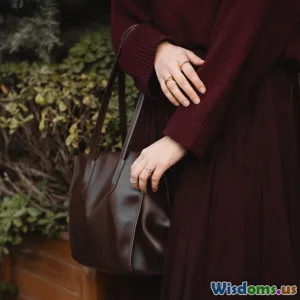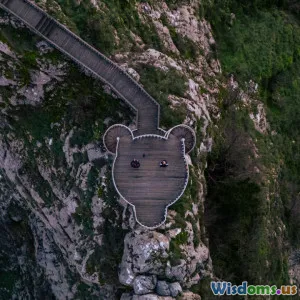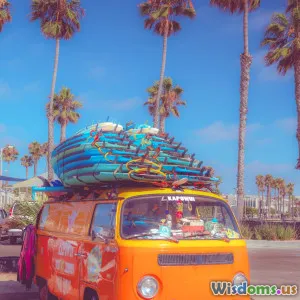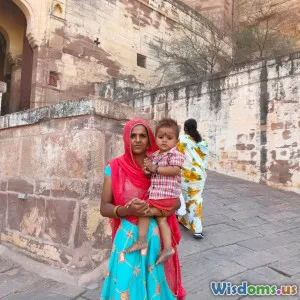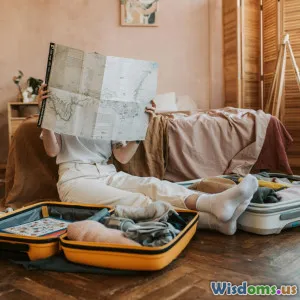
Minimalism: A New Way to Travel
8 min read Discover how minimalist travel transforms journeys by freeing you from excess, saving money, and enriching experiences worldwide. (0 Reviews)
Minimalism: A New Way to Travel
Travel has long been associated with the joy of discovery—of new places, cultures, and sensations. Yet for many, the stress of overpacking, complex itineraries, and overspending can overshadow these joys. Enter minimalism in travel: a transformative mindset focused on simplicity, essentialism, and meaningful experience over material excess. This is not just a trend but a powerful way to unlock deeper freedom and connection wherever we go.
The Rise of Minimalist Travel
Over the past decade, minimalist lifestyles have permeated sectors far beyond home décor or wardrobe choices, reshaping notions about how we approach living—and traveling. Data from Forbes in 2023 shows that interest in minimalist travel has surged, with a 40% increase in searches for “light packing” and “minimalist travel tips.” Influencers, eco-conscious travelers, and digital nomads champion this approach, citing financial savings, reduced stress, and greater immersion in local cultures.
What is Minimalist Travel?
At its core, minimalist travel is about intentionality. It means traveling with only what you truly need: a consciously curated selection of essentials to maximize convenience and freedom. This approach rejects the idea that more stuff equals better experiences. Instead, it's grounded in these principles:
- Pack Light: Focus on versatile clothing and multitasking items. Typically, minimalist travelers manage with a carry-on or a single backpack.
- Simplify Itinerary: Prioritize quality over quantity by staying longer in fewer places.
- Financial Mindfulness: Reducing expenses on unnecessary extras like excessive souvenirs or extravagant hotels.
- Sustainability: Minimizing environmental impact by using eco-friendly products, choosing local transport, and avoiding resource-heavy activities.
Case Study: The Carry-On Challenge
Jessica Nabito, a travel blogger and author of Living Light: The Art of Packing, challenged herself to travel internationally with only a 7kg carry-on for six months. She recounts, “It was eye-opening how much freedom I had without being tethered to excess baggage. Airports were less stressful, and I connected more genuinely with the places I visited.” Her experience mirrors advice from the experts who emphasize packing multi-purpose items like scarves that serve as blankets, or lightweight shoes suitable for multiple occasions.
The Benefits of Minimalist Travel
1. Financial Freedom
Cutting down luggage means avoiding checked bag fees—some airlines charge upwards of $50-$60 per flight. By focusing on budget accommodations and local meals over expensive chains, minimalist travelers frequently reduce trip costs by 20-40%. This creates opportunities to extend trips or invest in meaningful experiences instead.
2. Mental Clarity and Reduced Stress
Managing excess belongings during travel often causes anxiety. According to a psychology study in the Journal of Travel Research, travelers who pack less report greater peace of mind and enjoy more spontaneity. Traveling light means less time waiting at baggage claims, fewer worries about lost items, and the flexibility to change plans at a moment's notice.
3. Deeper Cultural Connection
Without heavy luggage and complex schedules, minimalist travelers engage more fully with local environments and communities. The slower pace allows for learning traditions, trying authentic cuisines, and fostering meaningful interactions. For example, minimalist travelers in Kyoto often choose guesthouses over hotels, enabling cultural immersion unique to that experience.
4. Environmental Impact Reduction
Sustainable travel is intertwined with minimalism. Carrying less means less weight for planes, which lowers carbon emissions. Using reusable items such as water bottles and travel utensils reduces plastic waste. Moreover, spending consciously on local businesses supports communities and reduces the traveler’s carbon footprint.
Practical Tips to Adopt Minimalist Travel
Master the Art of Packing
- Create a Capsule Wardrobe: Mix and match neutral colors and layers fitting for multiple climates.
- Use Packing Cubes: They optimize space and keep belongings organized.
- Limit Electronics: Bring only what’s essential and consider dual-purpose gadgets like phones with built-in cameras.
Design Meaningful Itineraries
Choose fewer destinations to explore in depth. This can transform a trip from a checklist exercise into a truly memorable adventure. For example, two weeks in Italy focusing solely on Tuscany and Rome will provide richer insights than hopping through five cities.
Embrace Slow and Local Travel
Opt for walking, cycling, or public transit instead of taxis. Participate in community activities or workshops to experience authentic day-to-day life. Minimalist traveler and author Rolf Potts posits, “The key to meaningful travel isn’t to evade possessions but to let go of needless ones to see the world more clearly.”
Minimalism: More Than Just Packing
While packing light is a cornerstone of minimalist travel, the philosophy extends into broader life attitudes. It’s about appreciating experiences over objects, prioritizing relationships, and cultivating mindfulness. Some minimalist travelers report increased gratitude and happiness, reflecting findings of positive psychology studies that link simplicity with well-being.
Conclusion: The Journey Toward Freedom
Minimalism offers an empowering alternative to conventional travel woes. By shedding excess, travelers gain financial, mental, and environmental freedom. They trade clutter for clarity, stress for serenity, and superficiality for genuine human connection. Whether a weekend getaway or months on the road, adopting minimalism transforms journeys into deeper, more authentic adventures.
As author Lao Tzu famously said, "Manifest plainness, embrace simplicity, reduce selfishness, have few desires." Minimalist travel invites us not only to explore the globe lightly packed but also to embrace life more fully.
Ready to start your minimalist travel journey? Begin by decluttering your luggage, rethink your next itinerary, and watch as the world opens up with newfound simplicity and richness.
Rate the Post
User Reviews
Popular Posts











